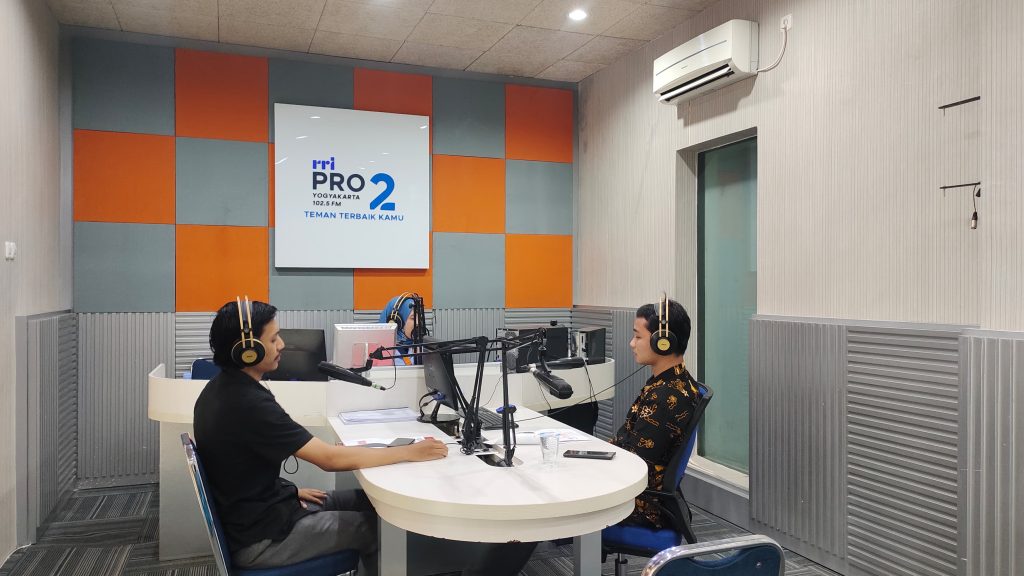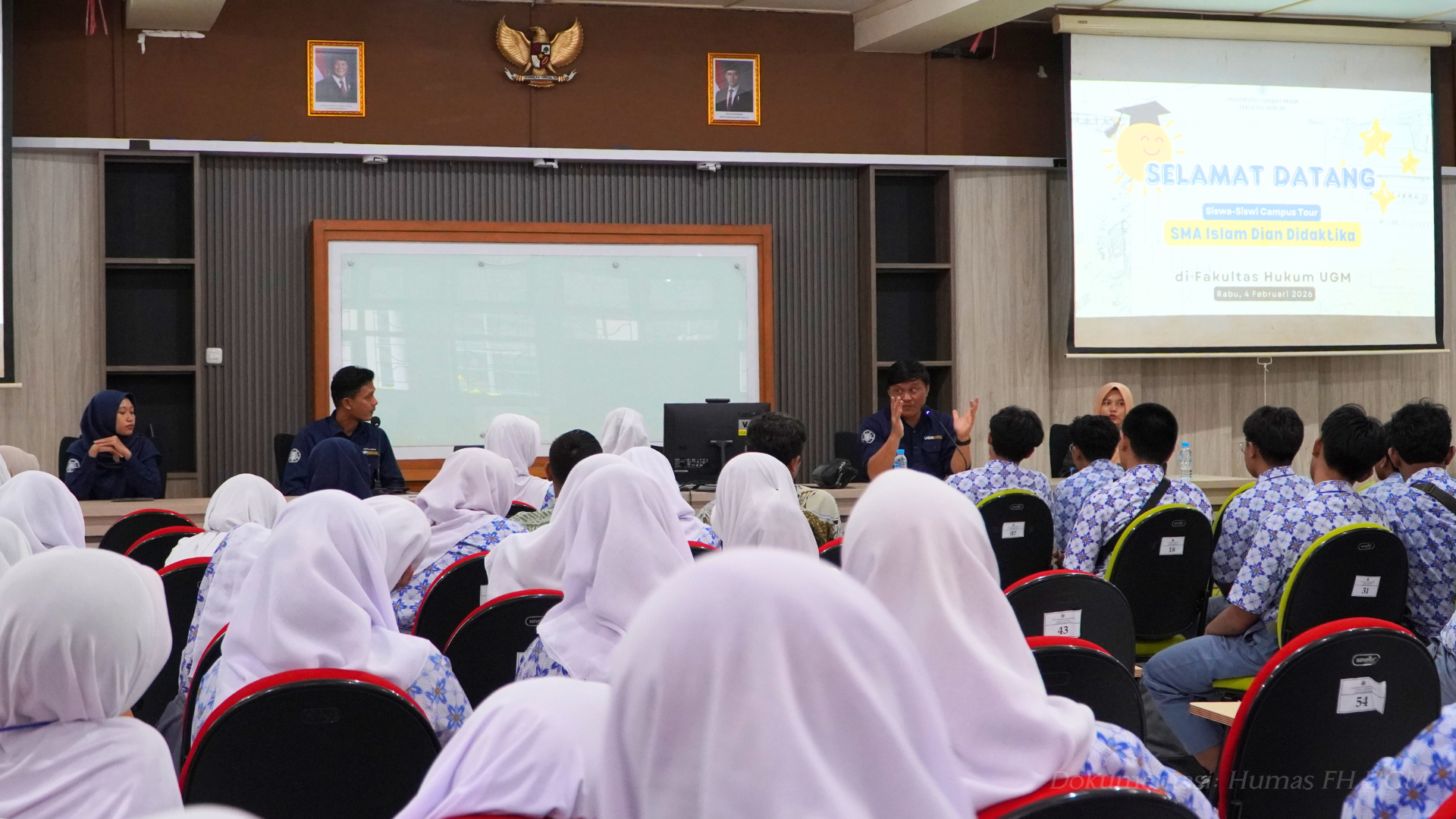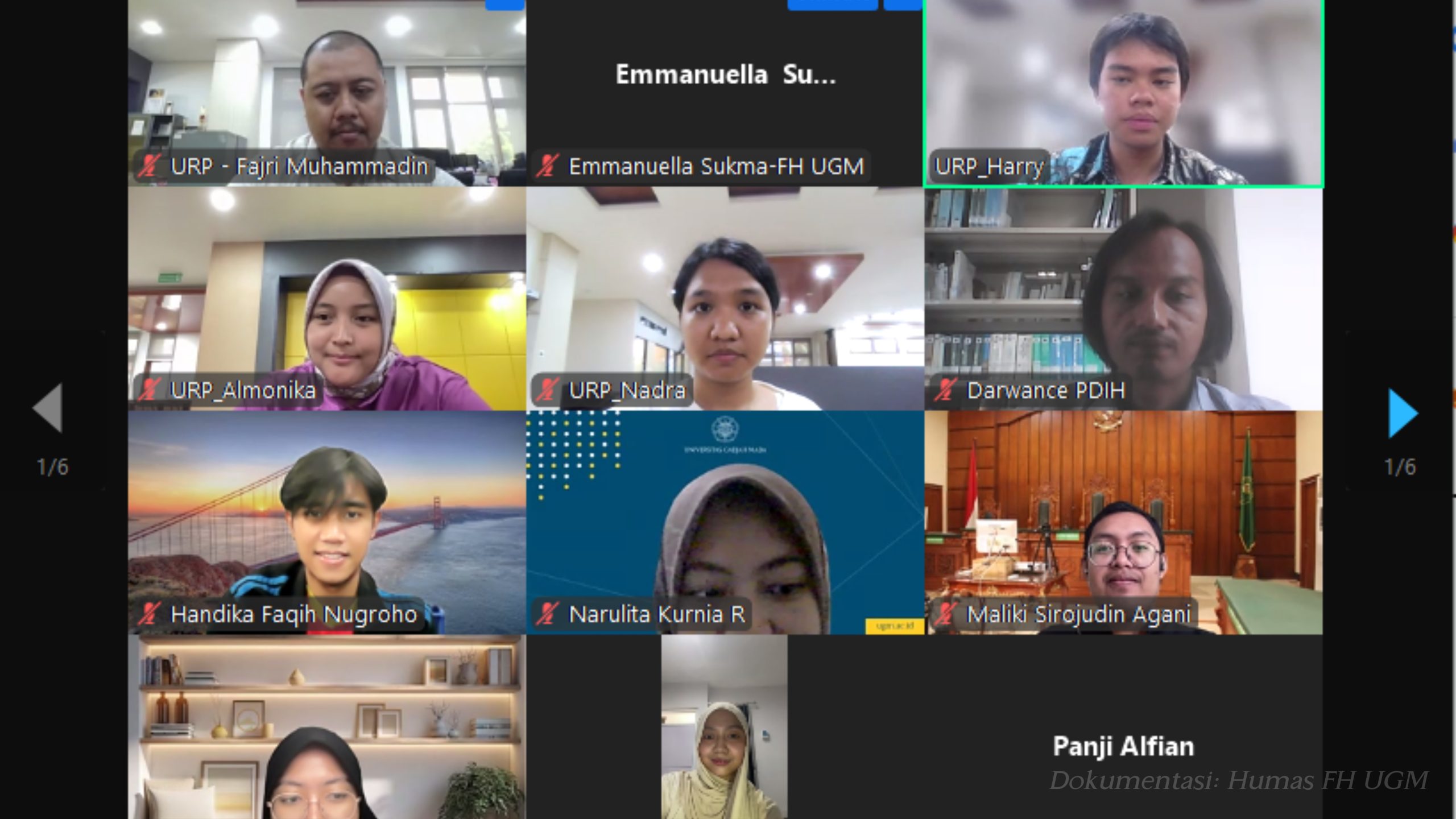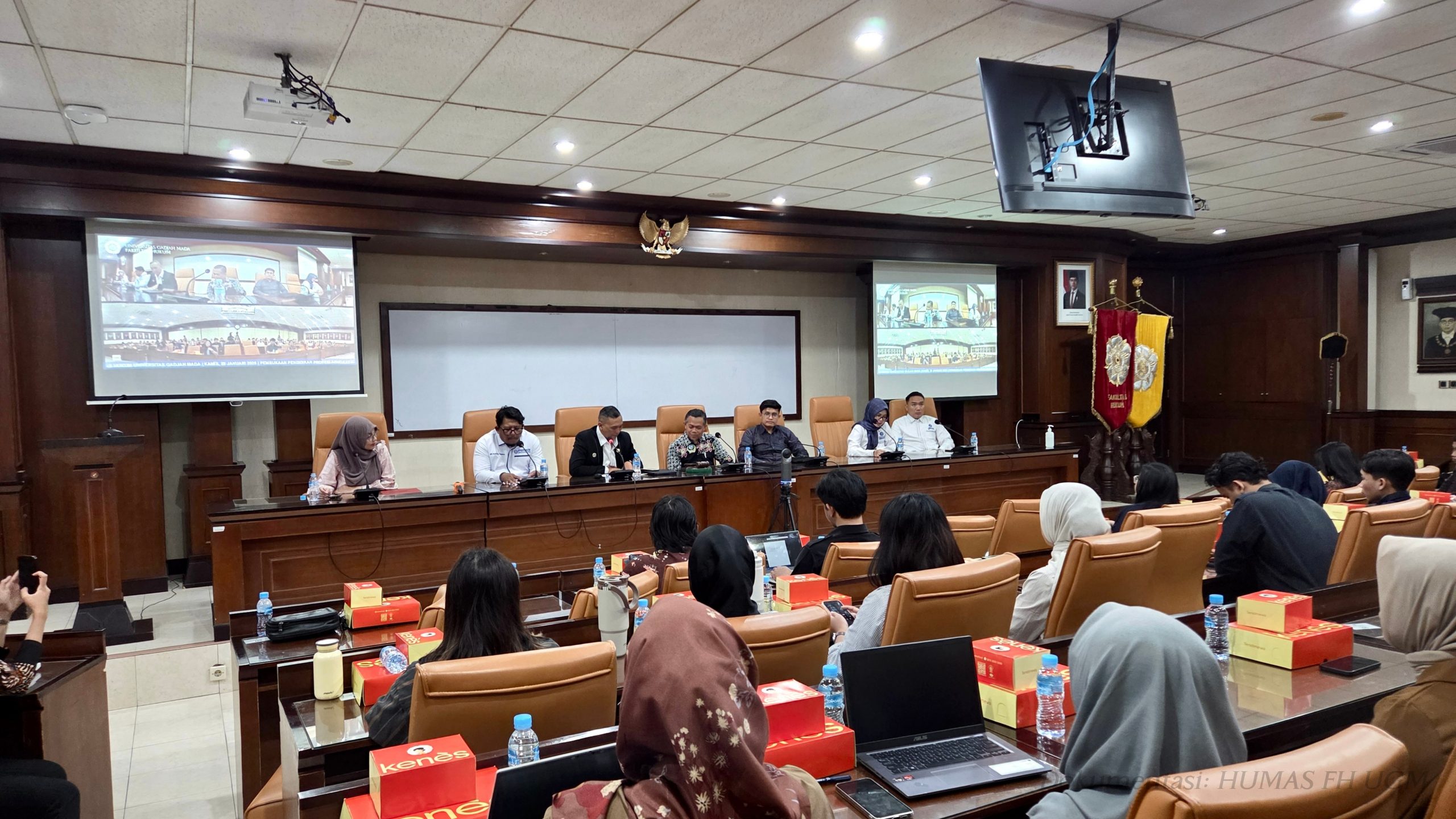Graduate students of the Master of Law Program at the Faculty of Law, Universitas Gadjah Mada (UGM), held a legal counseling broadcast on the theme “Islamic Law Accommodation Toward Customary Inheritance System in Indonesia.” The event took place on Wednesday (4/5/2025), via a live broadcast on RRI Yogyakarta Radio. This activity was organized in collaboration with UGM Law Graduate Students, the Center for Legal Consultation and Assistance (PKBH) of the Faculty of Law UGM, and RRI Yogyakarta Radio.
The legal counseling broadcast aimed to better inform the public about the dynamics of Indonesian inheritance systems. Specifically, it addressed how Islamic law can accommodate the customary inheritance systems that have long existed and developed within Indonesian communities.
The event featured two expert speakers in their respective fields: Anantya Aliyya Arkanbariq, S.H., M.H., a lecturer at the University of Surakarta, and Wildan Ulul Albab, S.H., a graduate student of the Master of Law Program at UGM Faculty of Law.
Anantya Aliyya presented an overview of the inheritance systems applicable in Indonesia, which include customary inheritance law, Islamic inheritance law, and civil inheritance law. She also shared several real-life cases that often arise in society, particularly disputes stemming from misunderstandings between Islamic and customary inheritance systems. Furthermore, Anantya highlighted the importance of understanding dispute resolution mechanisms, whether through legal channels or wise, non-litigation approaches.
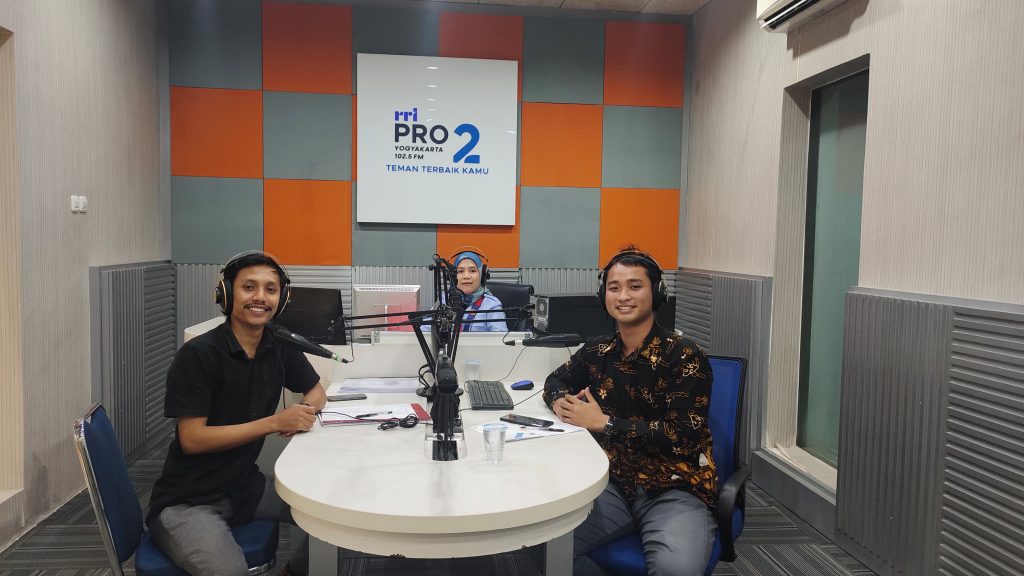
Meanwhile, Wildan Ulul explained the fundamental differences between hibah (grants) and inheritance, which are frequently misunderstood by the public. He emphasized that hibah refers to the transfer of assets during the giver’s lifetime, while inheritance involves the distribution of assets after the deceased’s passing. Misunderstandings of these two concepts can lead to conflicts, especially regarding the division of family wealth. On this occasion, Wildan also stressed that dialogue and upholding family values are key to resolving inheritance-related issues. He underscored that inheritance should not become a source of division within families.
The event concluded with an interactive Q&A session with enthusiastic RRI Yogyakarta listeners. Through this broadcast, it is hoped that the public will gain a deeper understanding of the various inheritance systems and be empowered to resolve inheritance conflicts wisely, peacefully, and fairly.
Moreover, this activity contributes to achieving the Sustainable Development Goals (SDGs), particularly SDG 16 (Peace, Justice, and Strong Institutions) by promoting access to justice for all and strengthening peaceful dispute resolution mechanisms. It also supports SDG 5 (Gender Equality) by advocating for the recognition of women’s rights in inheritance matters, as well as SDG 10 (Reduced Inequalities) by enhancing public awareness of fairness in inheritance distribution across different legal systems.
Penulis: Wildan Ulul Albab (Penerima Hibah Penyuluhan Hukum Mahasiswa)


